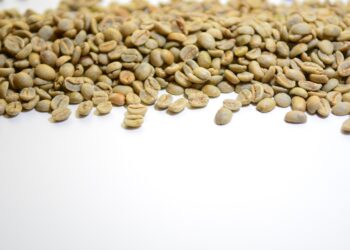Unveiling the Secrets of Arabica Coffee’s Unique Flavor
Introduction to Arabica Coffee
Coffee connoisseurs around the world prize Arabica coffee for its delicate, complex flavor profiles. Originating from the hills of Ethiopia, Arabica now dominates the coffee market, accounting for about 60-70% of the world’s coffee production. In this article, we will explore what makes Arabica coffee distinct, discussing its cultivation, flavor characteristics, and how it stands out from other coffee varieties like Robusta.
The Botanical Roots of Arabica Coffee
Coffea arabica, known as Arabica coffee, is believed to be the first species of coffee to be cultivated. This plant thrives in high altitudes and requires a specific climate characterized by consistent temperatures and moderate rainfall—a stark contrast to the hardier Robusta coffee, which flourishes at lower altitudes.
The cultivation of Arabica coffee is often seen as more labor-intensive and, thus, more expensive than other forms. The delicate nature of Arabica plants makes them susceptible to pests, necessitating more meticulous agricultural practices to maintain crop health and ensure high-quality yields.
Geographical Influence on Arabica Coffee Flavor
The unique flavor profile of Arabica beans can be significantly influenced by the conditions in which they are grown. This phenomenon, known as “terroir,” refers to the environmental conditions like soil type, altitude, and climate that impart distinctive flavors and aromas to the coffee. Countries renowned for their exquisite Arabica beans include Ethiopia, Colombia, Brazil, and Costa Rica—each offering beans with unique flavor notes ranging from fruity and floral to nutty and sweet.
Processing Methods
Arabica’s flavor is also shaped by the processing method used post-harvest. There are primarily three methods: washed (or wet), dry (or natural), and honey. Each method impacts the eventual taste of the coffee. For instance, the washed process tends to produce a cleaner, brighter flavor, while the dry process might result in a full-bodied coffee with a sweeter, more complex profile.
Chemical Composition and Flavor Profile
Arabica coffee is celebrated for its highly aromatic and flavorful profile, which contains about twice the amount of sugar compared to Robusta. This higher sugar content, combined with Arabica’s lower caffeine concentration, allows for a smoother taste with a greater range of subtle flavors.
The predominant flavors in Arabica coffee can include hints of chocolate, nuts, caramel, fruits, and berries, often accompanied by a slight acidity which is generally more pronounced than in Robusta beans. The presence of various oils and acids, such as chlorogenic acids, also contribute to the complexity and health benefits of Arabica coffee, offering antioxidants that are appreciated in health circles.
Roasting Impact
The roasting level additionally plays an essential role in defining the final taste of Arabica coffee. Light roasts preserve many of the unique characteristics of the original bean, including acidity and fruitiness, while darker roasts might enhance body and sweetness, bringing out chocolate and caramel notes.
Popular Questions About Arabica Coffee
How Does Arabica Coffee Compare to Robusta?
While both Arabica and Robusta have their place in the coffee world, they differ starkly in taste and growing conditions. Arabica is generally smoother, with a richer array of flavors and a higher acidity, compared to the stronger, more bitter Robusta that contains higher levels of caffeine and is commonly used in espresso blends for added body and crema.
What Are the Best Ways to Brew Arabica Coffee?
Arabica beans perform well in a variety of brewing methods. Methods like pour-over, French press, and cold brew can enhance the intrinsic qualities of Arabica coffee by allowing the subtle flavors and aromas to shine. The choice of brewing method can be a personal preference as much as it aligns with the specific characteristics of the bean’s origin and roast.
Concluding Thoughts on Arabica Coffee
The world of Arabica coffee is rich and multifaceted, offering an array of flavors that cater to a wide range of palettes. From its complex cultivation process to the impact of roasting techniques, many factors contribute to the beloved taste of Arabica coffee. As consumers continue to cultivate an appreciation for high-quality, specialty coffees, the allure of Arabica coffee’s unique flavor profile continues to grow in coffee cultures around the globe.
Understanding these nuances not only enhances your drinking experience but also appreciates the art and science behind each cup of Arabica coffee. Whether you’re a seasoned aficionado or a casual coffee drinker, the depth and variety of Arabica coffee are sure to delight and intrigue in every sip.





